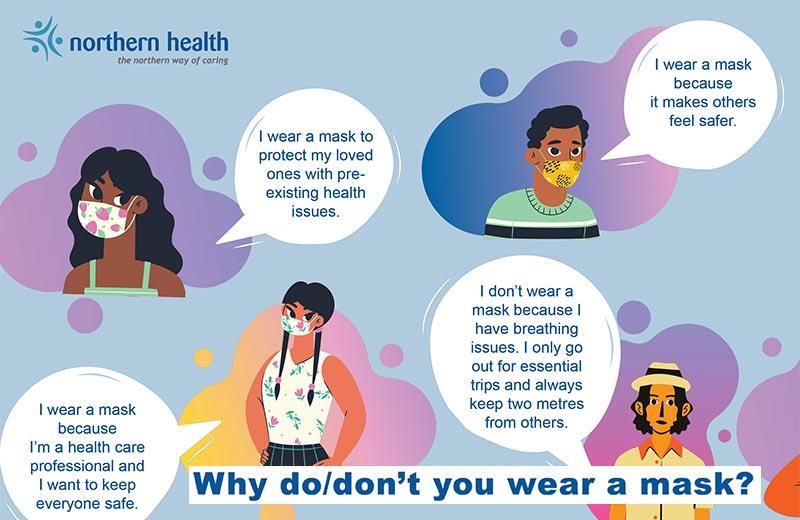Facemasks can be worn to help protect those around you and should be worn by people who are sick.
How can wearing a mask help?
Masks play a role in preventing the spread of COVID-19, especially for healthcare providers and people that have COVID-19. This is because masks act as a barrier to help stop the spread of droplets from a person’s mouth and nose when talking, laughing, yelling, singing, coughing, or sneezing. Masks should be used in places when you can’t physically distance from others, such as on a public bus.
Remember that wearing a mask does not replace other preventive measures and should be combined with frequent hand washing and physical distancing. Using only a mask isn’t enough to prevent the spread of COVID-19.
If you’re sick, wearing a mask doesn’t change the need to stay at home. If you can’t physically distance yourself from others at home, a mask can help prevent the spread of germs within the household.
Reasons why people do/don’t wear a mask
It’s important to remember that there may be reasons that you don’t know about that people choose to wear a mask; similarly there might be additional reasons why people don’t wear a mask, and those reasons may not be obvious. Regardless, now is the time for everyone to be accepting and kind to each other.
Here are some of the many reasons why some people choose to wear a mask and others don’t:
- I wear a mask to protect my loved ones with pre-existing health issues.
- I wear a mask because I’m a health care professional and I want to keep everyone safe.
- I wear a mask because it makes others feel safer.
- I wear a mask because some stores require it. I want to respect the employees and help them stay healthy.
- I don’t wear a mask because I have breathing issues. I only go out for essential trips and always keep two metres from others.
- I work with people who are deaf and hard-of-hearing. Facial cues are important for communication, so sometimes I remove my mask and physically distance instead.
For more information on who should wear a mask, types of masks, and how to properly clean a mask, visit the BCCDC webpage.














Comments